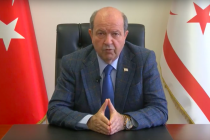Last week, the Yunus Emre Institute’s London branch hosted a “heartfelt tribute” to the victims of the Srebrenica massacre, which took place 29 years ago.
This act of genocide, committed by Bosnian Serbs against Bosnian Muslims in July 1995, resulted in the murder of 8,000 Muslim men and boys in the space of just a few days. Their bodies were dumped in mass graves. To this day, a significant number of the victims’ remains are still missing. Also during this harrowing period, many Bosnian Muslim women and girls were raped, all under the noses of the UN’s Dutch peacekeeping forces.
Held at the Yunus Emre Institute’s Maple Street venue and organised jointly with the Muslim Leadership Foundation UK on the annual Srebrenica Memorial Day on 11 July, the event titled “Srebrenica Remembered: Lessons for Justice and Peace” aimed to ensure “that such tragedies are never forgotten nor repeated.”
The event began with a minute’s silence to remember all the victims of the Srebrenica genocide. The sombre reflection set the tone for an evening dedicated to understanding and learning from one of modern European history’s darkest moments.
Dr Mehmet Karakuş (pictured speaking in top photo), Director of Yunus Emre Institute London, spoke about the critical role of “historical consciousness in the prevention of future atrocities”. He highlighted the Institute’s dedication to nurturing dialogue and understanding through a variety of cultural and educational initiatives.
Another speaker, Samra Koricic Mujkic, representing the Embassy of Bosnia and Herzegovina in London, provided a poignant narrative of the genocide’s enduring impact on the Bosnian Musklim (also known as Bosniak) community. Her words underscored the importance of international solidarity and collective efforts in the ongoing pursuit of justice.

The panel, moderated by Meryem Nur Kucuk, Researcher and Director of the Muslim Leadership Foundation UK, featured a dynamic discussion that delved deep into the geopolitical aftermath of the genocide and its far-reaching influence on international policies towards the Balkans.
Sami Hamdi, Dr. Aidan Hehir, Dr. Sheila Osmanovic, Arnesa Buljusmic-Kustura, and Sara Hukić each brought unique perspectives, from geopolitical analysis to personal narratives of survival and resilience. They also discussed effective strategies to prevent future genocides, with the panellists advocating for greater promotion of human rights, and the fortification of legal frameworks to hold perpetrators accountable.

The panellists also emphasised the crucial role of education in raising awareness on issues such as racism and Islamophobia as key to preventing further genocides, as well as the need for historical accuracy and the understanding of social dynamics to build a more just and inclusive society.
They recommended that the history of the Srebrenica genocide be formally included in the school curriculum to ensure that the lessons from this dark chapter are passed down to future generations.
The event closed with a powerful call to action, as speakers encouraged attendees to become advocates for peace and to take concrete steps towards creating a world where the horrors of Srebrenica are never repeated.





